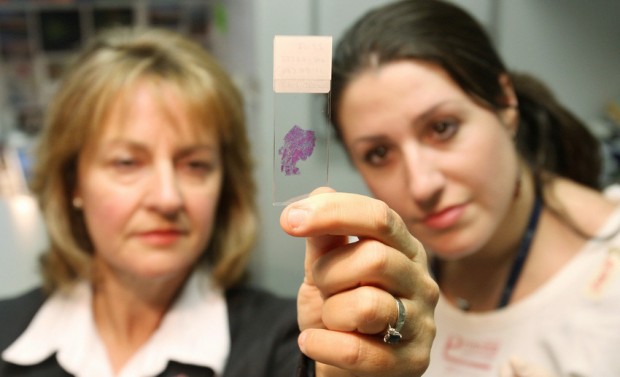
In a unanimous decision, the U.S. Supreme Court ruled Thursday morning that human genes are not patentable.
The case centered around Myriad Genetics, the holder of patents on two genes, BRCA1 and BRCA2. Some mutations of these genes are associated with an increased risk of breast and ovarian cancer. For women with a strong family history of these cancers, the only place they could be tested was Myriad Genetics, which sometimes charged more than $3,000 for the test.
Breast Cancer Action, an advocacy group based in San Francisco, was a plaintiff in the case, and executive director Karuna Jaggar sounded jubilant in a phone call Thursday morning.
"From our perspective, these patents never should have been granted in the first place," Jaggar said. "There's no question that DNA is a product of nature, and so it's very affirming to see the court rule in our favor."
BRCA1 and 2 mutations became international news when actress Angelina Jolie revealed that she'd had a preventive double mastectomy after testing showed that she had a specific mutation that put her at very high risk of developing breast cancer.